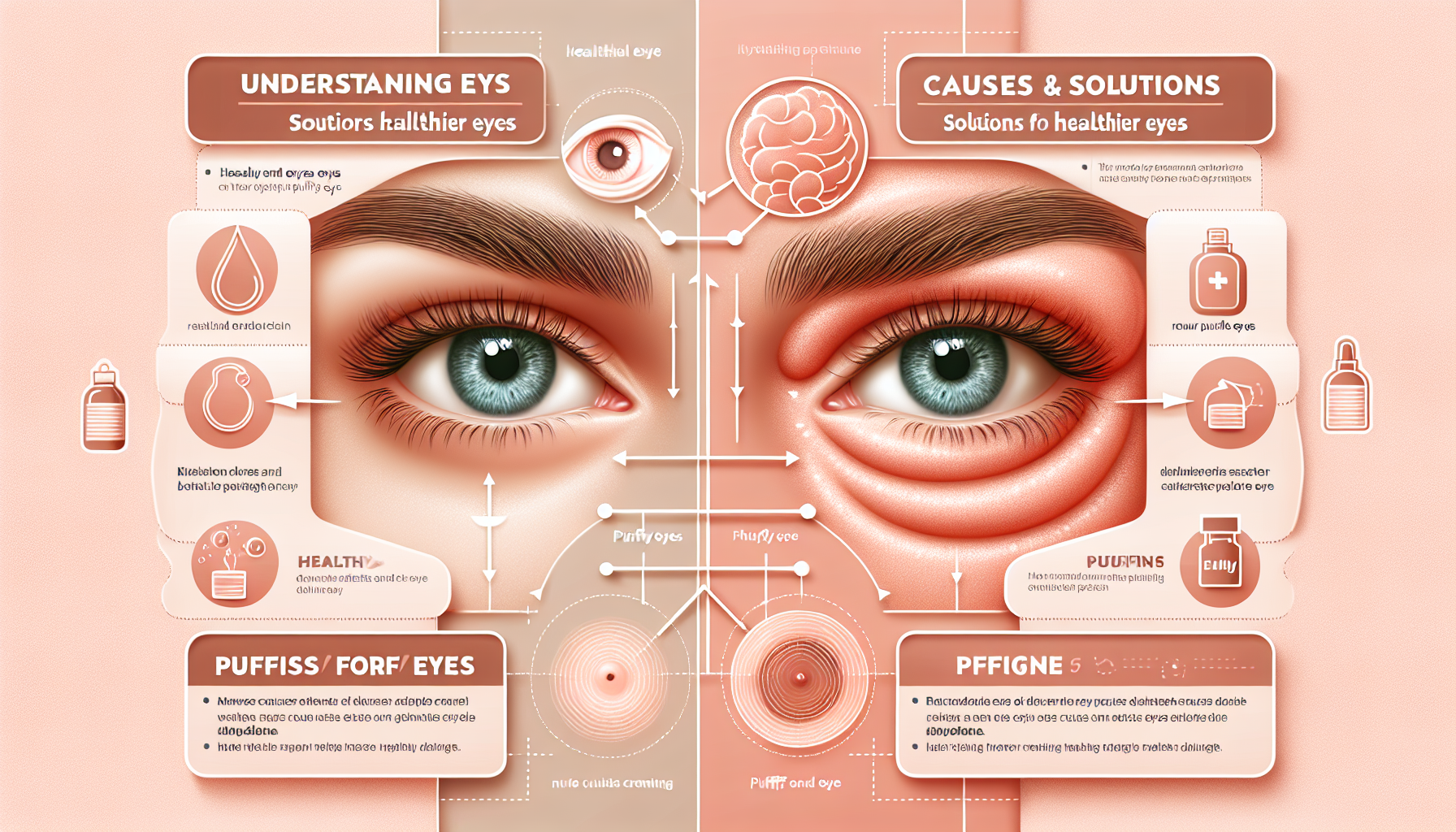Unlocking the Secrets Behind Puffy Eyes: A Comprehensive Guide
We've all been there. You wake up, and your eyes feel heavy and swollen, almost as if they have been working overtime while you were asleep. Maybe it was a long cry after watching a heartfelt movie or a mysterious puffiness that greeted you unexpectedly. The truth is, our eyes are delicate, expressive parts of our face and can often show signs of distress for many reasons. But what if frequent puffiness is more than just an occasional inconvenience? Let’s uncover the hidden factors behind puffy eyes and discover what they might be telling us about our health.
1. The Sleep Conundrum
Ever wondered why skipping a few hours of sleep makes the area under your eyes noticeably puffy? Lack of sleep can increase certain hormones that cause fluid retention. Dr. Anar Mikailov of Skintensive explains: "Insufficient sleep reduces lymphatic fluid available for detoxifying, which means toxins accumulate, leading to puffiness." In essence, sleep is the body's time to cleanse, and without adequate rest, those toxins pick up residency right under your eyes.
2. Positional Puffiness
It's not just a lack of sleep that leads to swelling. The way we sleep plays a crucial role as well. Are you face-down in your pillow as you dose off? Dr. Mikailov notes, "Sleeping face down causes fluids to pool around your eyes." Simple solution: Use an extra pillow to keep your head slightly elevated to help gravity pull the fluids away.
3. Hormonal Waves
For those who menstruate, fluctuations in hormone levels can lead to retention of extra fluid, especially noticeable in the face and around the eyes. That’s progesterone at work during the pre-menstrual phase, says Dr. Mikailov. Hormonal changes can explain why your eyes sometimes swell up during "that time of the month."
4. Allergy Alerts
Is pollen season making your eyes itch and swell? The release of histamines during allergic reactions leads to inflammation and puffiness, a tale told by millions each spring. "Increased [histamine] can most noticeably affect the face," states Mikailov.
5. Hydration Hesitation
A dehydrated body clings to precious water, resulting in fluid retention – a contradiction that surprisingly causes swelling. Not drinking enough water forces your body to conserve what little it has, often leading to puffiness.
6. Tear Triggers
Tears can be both a release and a cause for concern. After a good cry, the tissue around your eyes absorbs leftover tears like a sponge, resulting in swelling. Dermatologist Marisa Garshick adds, "Rushing to wipe those tears can irritate your eyelids, causing more swelling."
7. Alcohol Effects
Partying too hard can leave a puffiness hangover. Alcohol retains water and leads to facial swelling. Dr. Rebecca Marcus of MaeiMD elaborates, "Alcohol impacts sleep quality and inflames the body, both leading to puffiness."
8. Sodium Overload
Salty snacks anyone? High sodium intake causes the body to retain more water, primarily noticeable in the face. As Dr. Apple Bodemer points out, many processed foods are surprising sodium sources, sneaking their way into our diets.
9. Aging Attributes
Aging gracefully includes changes in skin elasticity – the thinning of skin and loss of collagen around our eyes make puffiness more prominent. Dr. Mikailov adds, "With age, structural support diminishes, making puffiness appear more evident."
10. Thyroid Talk
Persistent puffiness could warrant a medical visit. Dr. Mikailov warns, "Chronic swelling might indicate conditions like thyroid disorders." Monitoring puffiness and consulting a physician if it doesn't resolve could be key to identifying underlying issues.
11. Genetic Givens
Lastly, sometimes thanks – or blame – belongs to our genes. Some individuals are naturally prone to under-eye bags. While permanent fixes may require professional procedures, proactive steps can slow down progression as we age.
In conclusion, while occasional puffiness can be merely annoying, persistent or severe swelling should prompt further investigation. By understanding these underlying causes, we empower ourselves to tackle and mitigate the effects, ensuring brighter, healthier eyes. If puffiness persists, don't hesitate to seek professional advice for peace of mind and better health.
